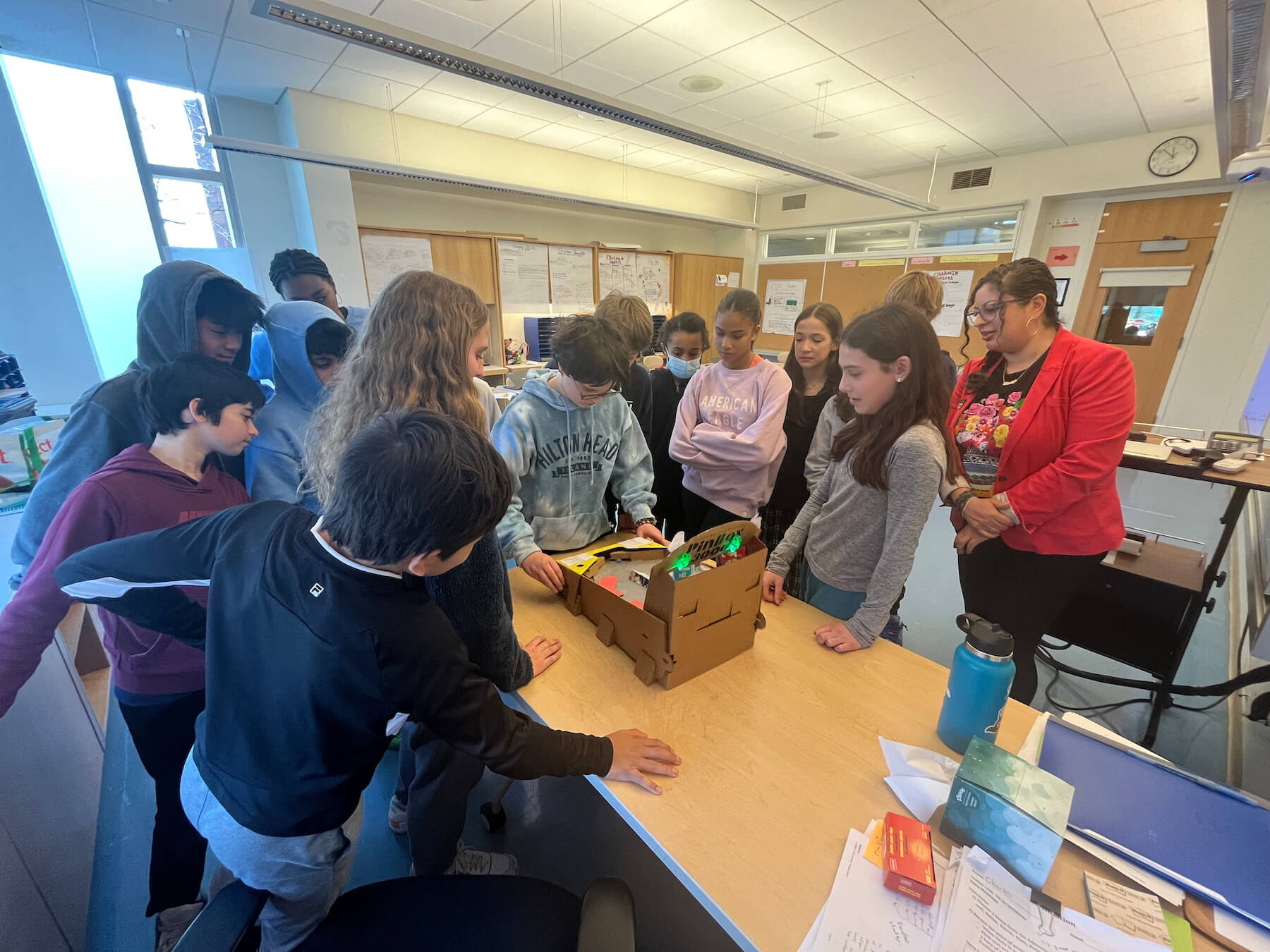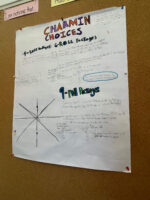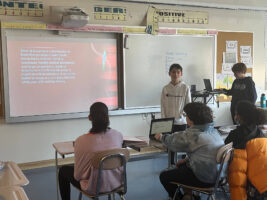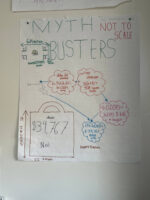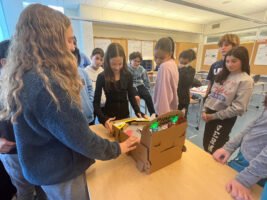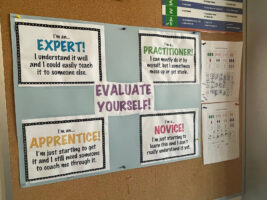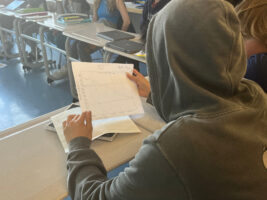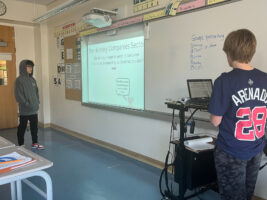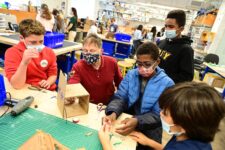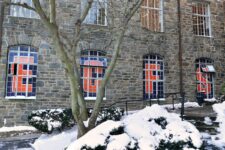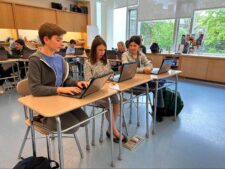Starting middle school is already daunting, but for some students, adjusting to an advanced math curriculum may be even more challenging. Wanting to meet their 6th Grade students where their varying abilities were, the Fieldston Middle Mathematics Department began seeking a solution for this uneven playing field.
Comprising about five years of teachers’ efforts, the current 6th Grade math curriculum now seeks to fill students’ conceptual gaps, incorporating everyday life and real-world logic into foundational topics. When they first enter the Middle School, students haven’t yet experienced total exposure to these fundamentals, requiring teachers to connect the dots between their existing knowledge and the mathematical building blocks that will support students in future years.
Having tailored their curriculum to teach at students’ levels, the 6th Grade math teachers now consider each student’s individuality, skills, and personal entry point to make mathematics more accessible.

“We work to deepen the definition of mathematics to more than just computational skills and concepts,” says Assistant Principal for Academic Life and Math Teacher Francesca Pisa. “As we unpack real-world problems and situations, we push our students to construct their mathematical knowledge to analyze relationships and to clarify and extend the solution to other areas of mathematics, which leads to a deeper understanding.”
Whether a student’s viewpoint is influenced more by art or logic, the current math system strives to promote flexible thought patterns and to honor the complexity of numbers.

“Some students get the idea that they’re not good at math because they only think of it as computation and arithmetic as opposed to logical problem solving,” says Fieldston Middle Principal Jon Alschuler. “Some students are incredible problem solvers who don’t think of themselves as mathematicians. Teaching in this way gets a wider variety of students excited to learn about math in a way that excites and interests them.”
A key component of this method is exemplar problems, which introduce real-world dilemmas and open-ended solutions alongside the mathematical application. These relatable scenarios emphasize the use of realistic logic and how a student explains their final answer. Inspired by the COVID-19 pandemic’s toilet paper shortage, one 6th Grade class explored an exemplar about the Charmin brand and the different financial situations persuading consumers whether or not to buy it. Classes also play the stock market game, learning to decipher stocks and the changing market and invest money. Like a “MythBusters” segment, another exemplar discussion asks students if they could fit a million dollars in a suitcase.
A capstone project also incorporates ethical debate, asking students to consider certain companies’ environmental, ethical, and social contributions. Additionally, teachers run the Math Lab, a voluntary study hall session for students to dive deeper into new topics or to benefit from an extra focus on math.
According to Math Teacher and Grade Dean Elizabeth Flores, the goal in 6th Grade math is to create “problem solvers.” While students may finish the academic year as stronger mathematicians, their real mark of success is having the tools to conquer numbers in both the classroom and the real world.
